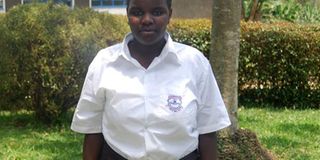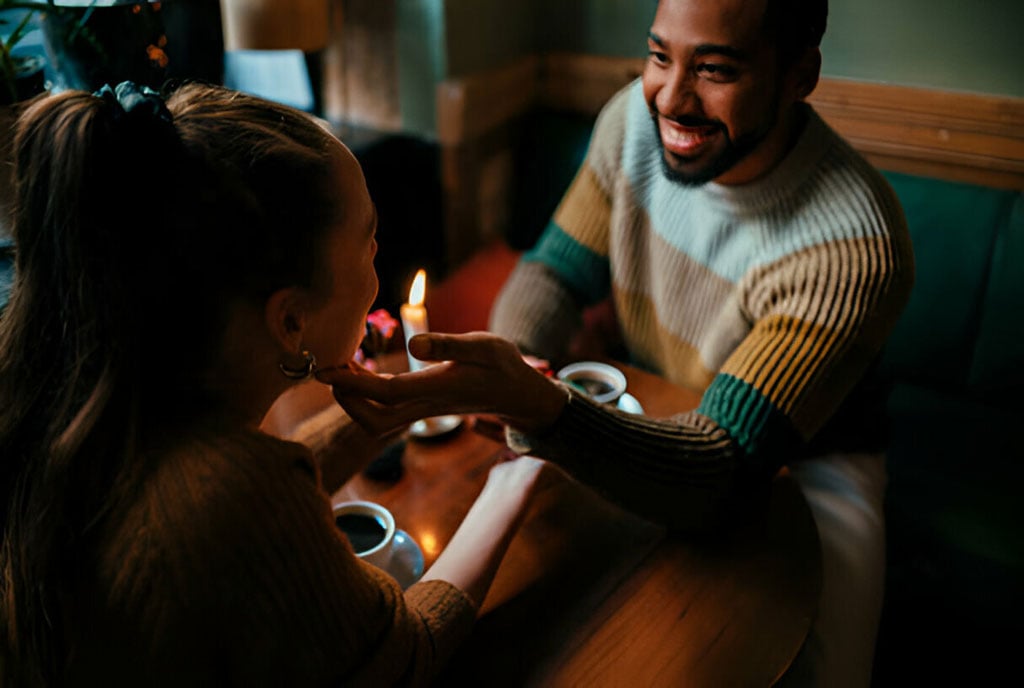My life as a fostered child

Agnes Orishaba is grateful that the home she lives in has taken good care of her. PHOTO BY DORCUS MURUNGI
What you need to know:
For as long as she can remember, Agnes Orishaba has lived in a foster home all her life. Although she believes she has missed parental love, she is happy she had a chance to live in a loving home.
Many people believe that it is hard to live as a fostered child, but here I am very strong and healthy. I found myself in this foster home, and I have been there since my childhood. I have been taught manners in this place, plus I been given an education from nursery till now and I am in secondary school. I am very comfortable and there’s no big difference between me and someone who stays with his or her real parents.
My name is Agnes Orishaba, and I am a Senior One student at Kyebambe Girl’s School. At first I did not know why I was staying in this particular home with different children from different backgrounds. I did not care so much at that time because everything was going on normally. However, when I grew up, I realised that how I was brought up was quite different from what my schoolmates told me about their upbringing.
During my primary school at Kyebambe Model, my friends told me that they were living with their mothers and fathers which was contrary to what I was experiencing. This forced me to go back to my foster home and inquire who my real parents were since I was only brought up by matrons who we refer to as aunties.
How to I got to know my father
That is when my matron, Christine Mugasa, explained to me how I actually got into this home. She told me that during my birth, I lost my mother. She had a complication which was a retained placenta, and she bled severely. The probation officer recommended that I be adopted by Tooro Babies Home since I was vulnerable and had no one to take care of me. The news really tormented me but I was, however, encouraged when they told me that I had a father.
I am not very sure whether my matrons called my dad but shortly after that, he came to see me at school.
He introduced himself as Mr Mugusa and said that he was my biological dad. He asked whether the matrons had told me something about him, and I narrated to him what they had told me. He looked a little depressed after I had spoken and he just nodded his head and told me that was what transpired.
He looked quite happy to meet me but he did not tell me much about himself, things like what he does for a living. He only told me that his home is in Kamwenge District. He had brought me some goodies which I received from him and I was very happy, but surprisingly enough that was the first and the last time I saw him, to this date.
I guess he did not want to keep visiting because he did not want to take responsibility of me. But I have learnt to make peace with that, besides I receive such love and care here. My matrons are very friendly, particularly Aunt Peace; she loves me as though I was her real child.
During the holidays, on weekends, I wake up early in the morning and I wash my clothes, I even help out and wash some clothes for my other schoolmates who cannot help themselves. In most cases my whole day on Saturday is about washing clothes and ironing in the evening. On Sunday, our matrons take us for prayers. We have vehicles which transport us to the church and when we come back, they let us watch interesting movies.
On other week days I usually spend my time with the young ones, those who are crawling and cannot help themselves. Sometimes they bring children who are very sick who have been got from mentally unstable women on the streets, so I always work with the matrons to help such babies recover.
Our institution is headed by the government, but the matrons are the ones who run it on their behalf. Christine Mugasa, the head matron, directs and administers how the institution should be run. Other matrons are directly answerable to her.
Our institution houses 49 children, though I am not certain of its limitations.
We are many children; others are brought even when they are as old as one week. We have learnt to stay together and help each other wherever possible. In fact those of us who are older help the young ones get used to the environment.
Our environment is good though we are many, and everyone is orderly.
I am happy because of what I am today and I have never regretted being part of Tooro Babies Home. I am also grateful for what they have done for me.
I am at a boarding school but I get all that I need. I have never lacked any thing at school and some of my schoolmates believe that I stay with my real parents. “The challenge that we are facing today in our country is failing to remember and give back to the community. If we learn to give back and appreciate those who have done us good, then I am sure that our country will develop.”
Our institution is run by the government but there are times when we run out of funds, however our matrons have started up some farms. We get food from these gardens and they help us a lot. We are fed well with a balanced diet.
Our matron sometimes tells us that our institution has run out of funds and I get scared because I think of the possibility of some of us being sent back home. I really don’t want to go back home because if my biological father failed to come and check on me, I am worried about whether he can handle taking me to school.
I want our institution to exist forever because I believe there are many children out there who might be as vulnerable as I was and would need to be helped.
MISSING PARENTAL LOVE
“There are times I envy my friends who are staying with their real parents, I believe parental love still remains the best. When you grow up with your real parents, there are some things that they teach you, may be in regard to their culture and they also tell you about their past, things to do with where they came from, their economic status and their life history in general and I think that is the most important thing that I missed in life.
I don’t know about my back ground and although I found out about my father, there are still many things that I don’t know about myself. I am afraid that it may affect me in one way or the other. I hear some men don’t marry women whose background is not clear because they believe they might be having funny historical backgrounds.”
ABOUT TOORO BABY’S HOME
Tooro Babies Home is a government institution which was initiated 43 years ago. With the help of church leaders, the government put up the home with an aim of securing a place for babies who were born by mentally unstable mothers or those whose mothers died during child birth.
“The government realised that lots of babies were prone to insecure conditions and they decided to put up a home,” Christine Mugasa, the head matron at Tooro Babies Home says. Accordingly, the home receives babies with the directives of the probation officer who recommends the baby under certain rules and that is how the baby comes to be adopted.
“As staff of Tooro Babies Home, we have no authority to allow the adoption of any baby because it is a government institution. There are stages that are followed in order for a child to be adopted.”
The institution is said to house 49 children at the moment, but, they have a challenge of funds.
“Our institution is supposed to run on a budget of Shs16m a month but we don’t get this money. We are helped by charity organisations but we have a problem of donor fatigue. So far, it is only Tooro Child Care Centre which funds us with Shs5m per month which is really insufficient,” she says. The matron says they have started up projects like farms and they have even started constructing a storeyed building to enable them support their children.




